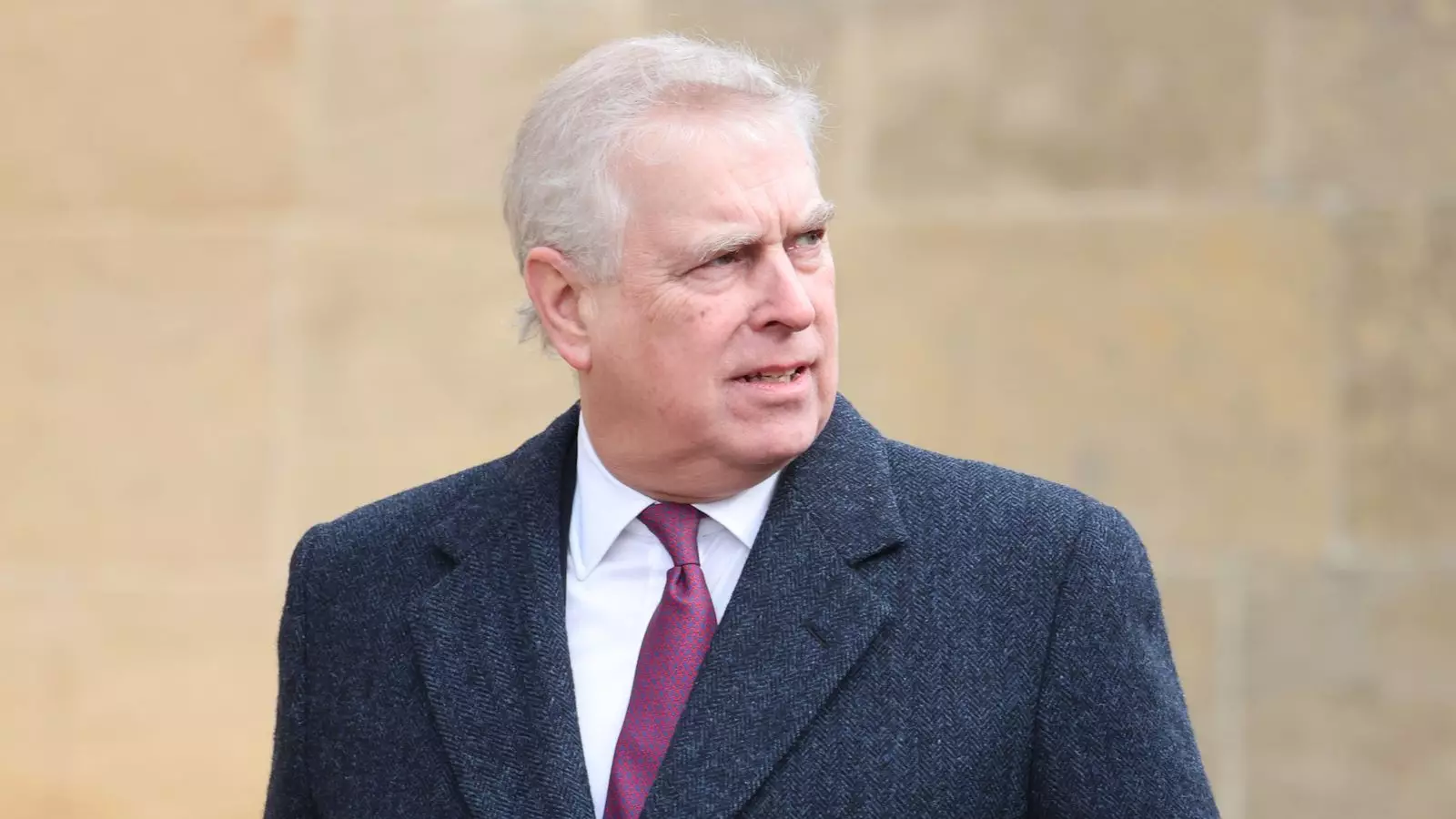Prince Andrew, the Duke of York, has emphasized a deliberate detachment from a businessman purportedly implicated in espionage activities on behalf of the Chinese government. Following advisories from the UK government, he stated he “ceased all contact” with this individual without ever having engaged in conversations centered on “sensitive nature.” This statement arises in light of new revelations regarding the individual’s exclusion from the UK due to national security threats. It presents a complex narrative that intertwines royal status, international espionage, and the ramifications of alleged affiliations with foreign entities.
In the statement released by Andrew’s office, he sought to clarify the nature of his relationship with the unnamed businessman, who is rumored to have had significant ties with the Chinese Communist Party. While Andrew maintains that the engagement was strictly official, the implications woven into the fabric of this statement raise questions about the broader connections between the royal family and foreign individuals seeking influence in the UK.
The case of this unnamed individual, referred to in documents as H6, paints a troubling picture of the intersection between royal engagements and global political intrigue. The individual reportedly attended Andrew’s 2020 birthday celebration and was considered to be capable of facilitating ties with Chinese investors. This connection might appear innocuous on the surface. Still, the actions of the Home Office and the Special Immigration Appeals Commission (SIAC)—which have labeled H6 as a potential threat to national security—indicate a more significant underlying concern regarding influence and manipulation of high-profile personas.
The allegation that H6 engaged in “covert and deceptive activity” on behalf of the Chinese government adds layers of complexity to Prince Andrew’s ties to the man. The UK’s former Home Secretary, Suella Braverman, barred H6 from entering the country, framing the individual as a potential risk, which prompts scrutiny of Prince Andrew’s past associations. Furthermore, the revelation that H6 allegedly asserted manipulation over Andrew—suggesting that the prince “is in a desperate situation and will grab onto anything”—serves to intensify existing fears tied to vulnerability and exploitation by foreign operatives.
From 2001 to 2011, Prince Andrew occupied the role of the UK’s trade ambassador, a position that protrudes with potential conflict given the recent allegations. His departure from royalty’s active duties in 2019, due to his associations with the convicted sex offender Jeffrey Epstein, has left him in a precarious position where every link with individuals can raise eyebrows. Additionally, the royal family has weighed in on the issue, stripping him of military affiliations and royal patronages within the past year, making Andrew’s public persona one fraught with suspicion and scrutiny.
The recent SIAC letter articulated the importance of evaluating the influence others may have on royal figures. The implication here is evident: Andrew’s connections, once seemingly harmless, are now viewed through a lens of suspicion and potential jeopardy to national interests. In light of ongoing geopolitical tensions, particularly with China, Andrew’s past choices to engage with high-profile individuals become a point of concern for national security experts and royal observers alike.
The situation has also drawn reactions from external parties, notably the Chinese embassy in the UK, which dismissed the accusations as unwarranted and politically motivated. Their statement argued that such claims are constructs used to tarnish China’s reputation and obstruct essential interpersonal relations. This diplomatic rebuttal underscores the fraught nature of international relations as they converge with the private lives of royalty.
Prince Andrew’s careful navigation of these tumultuous waters highlights the ongoing challenges faced by individuals within the royal family, where every action is subject to public and political examination. The specter of espionage and national security weighs heavily on Andrew’s future engagements and relationships, further complicating his efforts to rehabilitate his public image.
The intertwining of royalty and geopolitics raises urgent inquiries regarding accountability, the influence of powerful figures, and the scrutiny that accompanies the public life of a royal family member. As Prince Andrew seeks to distance himself from these allegations, the implications of his past engagements will linger, necessitating a cautious approach moving forward. The saga serves as a reminder of the profound and often perilous intersections of influence, power, and the responsibilities held by public figures in an increasingly complex world.

